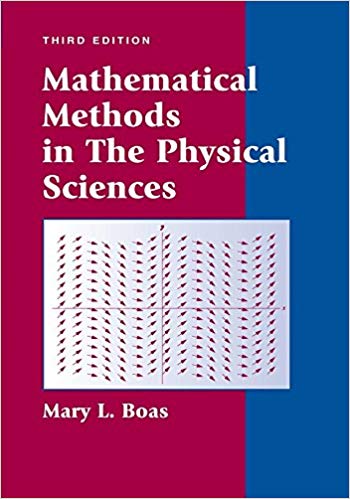Math 308
Mathematics for the Physical Sciences, Spring 2020
NOTE: This is a revised syllabus, covering the portion of the term after the transition to remote instruction on March 23, 2020. Click here to see the old syllabus, which this replaces.
Basic Information
Instructor: Ari Stern
Email: stern@wustl.edu
Office Hours: TuTh 12-1:30pm (via Zoom, accessed
through Canvas)
Course Announcements
Most communication about the course will take place through Canvas announcements, so please make sure that you have notifications turned on and check them regularly.
Homework Assignments
Problem sets will be posted to Canvas approximately weekly, and solutions will be submitted by uploading them before the specified due date and time. For handwritten work, I recommend using a scanner app on your phone to photograph the pages and upload them as a single PDF. (Of course, if you have an actual scanner, that works even better.)
You are encouraged to discuss the homework with your fellow students and to collaborate on problems, but your final write-up must be your own. Please make sure that your solutions are written clearly and legibly.
Cecilia Xue (cecilia.xue@wustl.edu) is responsible for grading the homework assignments.
Lectures
Lectures will be held MWF 1-1:50pm, live via Zoom. These lectures will also be recorded to the cloud for later viewing. Live lectures and recordings will both be accessed through Canvas using the Zoom link in the navigation bar. The last lecture will be on Friday, April 24.
Exams
The first midterm exam was held in class on Wednesday, February 26. The second midterm exam will be Wednesday, April 1, and the final exam will be on Wednesday, May 6.
The second midterm exam and final exam will each be posted to Canvas and handed in electronically via file upload (just like homework assignments). In advance, I will announce what time the exam will be posted and the deadline for submission, which will be at least 12 hours after posting. This longer time window is intended to accommodate scheduling and time-zone issues, disability extra-time accommodations, and the additional time needed to scan and upload your solutions.
Grading
Grades will be based on a weighted average of homework (30%, lowest score dropped), midterm exams (20% each), and final exam (30%).
The corresponding letter grade will be assigned using the following scale:
| A | A- | B+ | B | B- | C+ | C | C- | D | F |
|---|---|---|---|---|---|---|---|---|---|
| ≥90% | ≥85% | ≥80% | ≥75% | ≥70% | ≥65% | ≥60% | ≥55% | ≥50% | <50% |
The scale may be adjusted upward based on the class's cumulative averages. However, it will not be adjusted downward, so your letter grade is guaranteed to be at least that corresponding to your score on this scale. The grade of A+ is given at the instructor's discretion.
Pass/Fail policy: You must earn at least a letter grade of C- to get a P.

Textbook
The text for this course is Mathematical Methods in the Physical Sciences (third edition), by Mary L. Boas, published by Wiley. I plan to cover Chapters 6, 7, and 13, plus possibly a few additional selected topics as time permits.
The textbook is quite encyclopedic and covers many other topics that you may find useful outside this course, as well as some material from prerequisite courses.
Academic Integrity
All students are expected to adhere to high standards of academic integrity, as specified in the undergraduate student academic integrity policy. Since this course is offered through the College of Arts & Sciences, any violations of this policy will be referred to the College’s Academic Integrity Officer. Violations of this policy include, but are not limited to:
- homework collaboration exceeding that permitted in the Homework Assignments section above (e.g., preparing your final write-up side-by-side with another student rather than independently, copying another student's solutions);
- submitting the work of others as your own (e.g., copying solutions found online);
- exam misconduct (e.g., copying another student's exam or knowingly allowing your exam to be copied, giving or receiving unauthorized assistance, use of unauthorized books/notes or other materials, unauthorized use of electronic devices, etc.).
If you have any questions, or are unsure about what is permitted/prohibited by this policy, please ask me.
In many cases, academic integrity violations are the result of getting behind in coursework and making bad decisions under pressure. Keep up with your assignments, ask questions when you are unsure what is expected of you, and do not give in to the temptation to cut corners.
Catalog Description
Continuation of Math 233 that emphasizes topics of interest to the physical sciences. Topics in multivariable and vector calculus include: vector fields, div, grad, curl; line and surface integrals and connections to electromagnetism; Fourier series and integrals, boundary value problems (diffusion and wave equations); topics from calculus of variations. STUDENTS MAY NOT RECEIVE CREDIT FOR BOTH MATH 308 AND MATH 318. Prerequisite: Math 217 and Math 233, or permission of instructor.